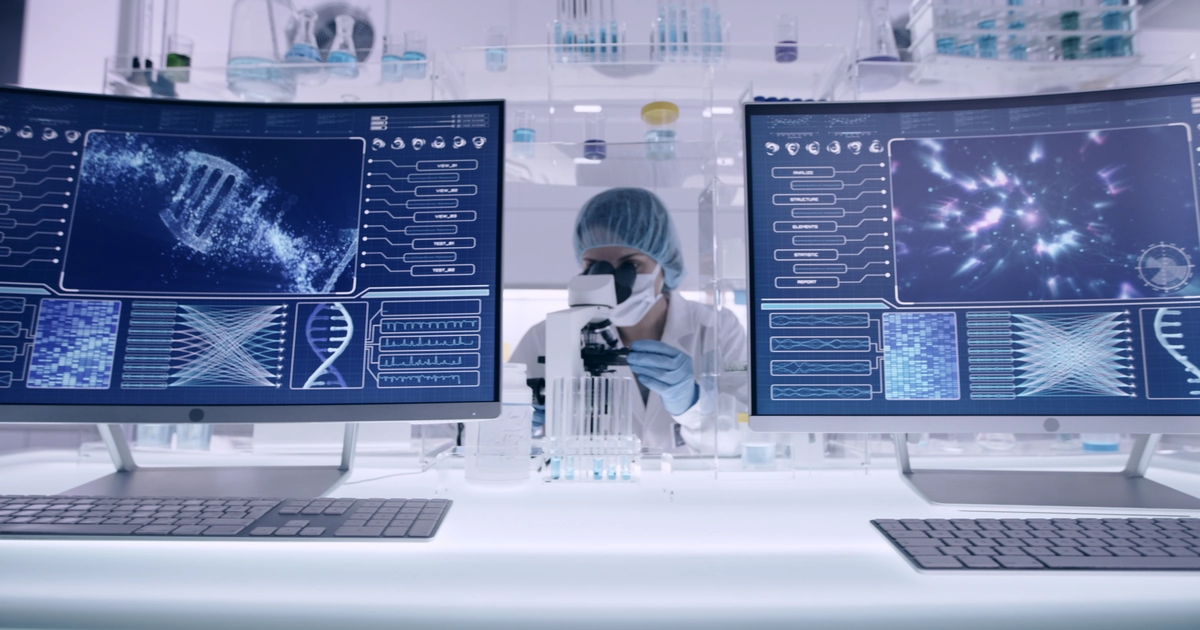Biotechnology is no longer just a technology that predicts the future; it is now dramatically changing our lives. New innovations in medicine, agriculture, energy, and the environment continue to emerge and have the power to fundamentally reshape our future. This article details how biotechnology is being applied in various fields and how it will open up the future with specific examples. We will thoroughly explore how our lives have changed and which technologies will drive the next generation.
The Rapid Growth of the Biotechnology Market: Figures Show Future Potential
Expanding markets and technological innovations on a global scale
In 2022, the biotechnology market will500 billion dollars (70 trillion yen)), and its growth shows no signs of stopping. The market will more than double in size by 2030,1 trillion dollarsThe number is projected to exceed Of particular note is the rapid evolution of technologies in the fields of biomedicine, bio-agriculture, and bioenergy. For example,CRISPR-Cas9 Technologyhas dramatically streamlined gene editing, making it possible to modify specific genes for only a few thousand dollars. The technology has been applied to tens of thousands of research projects worldwide, with large-scale trials underway in agriculture and medicine, particularly in China and the United States.

The CRISPR-Cas9 Revolution: Shaping the Future of Gene Editing
The Reality and Hope of Evolving Gene Editing Technology
With the advent of CRISPR technology, gene editing is,Cost down to thousands of dollars for just one gene manipulation from the previous multi-million dollar costThe technology has been applied in the agricultural sector in particular. This technology is being applied particularly in the agricultural sector. For example, new anti-disease corn varieties are being grown in China using genome editing, which has enabled the conventional10 times fasterThe harvest is increasing in the In addition, in the U.S., genome editing is being used to develop foods that reduce food allergies, and it is hoped that these technologies will be widely adopted in our daily lives in the future.
The impact of CRISPR technology does not stop there. In the medical field, it has the potential to revolutionize the treatment of genetic diseases and cancer: in 2020, the world's first CRISPR-based gene therapy will be implemented in the United States, with reports of significant improvements in the condition of patients with genetic diseases. This case study is a symbolic step in how future medicine will change.
Reference: Newsweek Japanese edition, "Gene Editing 'Crisper': 10 Applications That Were Once Impossible."https://www.newsweekjapan.jp/stories/technology/2019/01/10-53.php

The Future of Medicine: Stem Cell Therapy and AI Bring a Medical Revolution
Evolution of Stem Cell Therapy Changes the Future of Life
Stem Cell Therapy Marketis growing rapidly each year: the market is expected to surpass $9 billion by 2022 and double in size to $18 billion by 2030. The greatest appeal of stem cell therapies is that they offer new hope for diseases that have been difficult to treat in the past. For example,Parkinson's diseaseStem cell therapy for patients with ,Significant improvement in symptomsand are able to return to their daily lives.

AI accelerates new drug development
While the development of new drugs used to take more than 10 years and about $2.5 billion, the convergence of biotechnology and AI is dramatically streamlining this process. ai technology has dramatically improved the structural analysis of proteins, speeding up the discovery of new drug target molecules. AI technology has dramatically improved the structural analysis of proteins, speeding up the discovery of target molecules for new drugs.DeepMind(at sentence-end, falling tone) indicates a confident conclusionAlphaFoldis just one example of how it is taking the multibillion-dollar pharmaceutical market by storm. AI is now an integral part of new drug research and development.
Reference: Nature, "AI's potential to accelerate drug discovery needs a reality check"
https://www.nature.com/articles/d41586-023-03172-6

Agricultural Revolution: The Challenge of Food Problems
The Future of Agriculture as Envisioned by Genetically Modified Technology
By 2050, the world's population will be9.7 billion peoplereached a level ofFood production needs to increase by 701 TP3TIt is. The focus is on how biotechnology can meet this challenge. Drought tolerant crops and wheat with high nutritional value have already been developed through genetic modification technology, and this is dramatically changing agricultural production around the world. In Africa, in particular, there are examples of genetically modified bananas being introduced to help alleviate nutritional deficiencies, and attention is being focused on how this will affect the problem of hunger.
Reference: Science Council of Japan, "Current Status of Genetically Modified Crops in the World and Efforts toward Social Acceptance.
https://www.scj.go.jp/ja/event/pdf/kamata.pdf

Biotechnology and Ethical Challenges: International Regulations to Safeguard the Future
Genome Editing and Ethical Dilemmas
The ethical challenges posed by the evolution of biotechnology are becoming increasingly complex. In particular, with the advancement of gene editing technologies, the pros and cons of modifying the human genome are being debated internationally; in 2018, the birth of the world's first genome-edited twins in China caused a huge stir worldwide, and there is an urgent need to strengthen regulations in the international community. Establishing an ethical framework for the advancement of science and technology is an important issue for the future.

International Regulation and Cooperation
Advances in biotechnology cannot proceed without international cooperation. For example, regulations for genome editing technology differ from country to country, but discussions are underway to form an international consensus. In order to keep up with technological advances in the future, it is essential that countries cooperate and have transparent discussions.

Summary: The Future of Biotechnological Evolution
The future of biotechnology is more than just technological innovation. It will have a direct impact on our lives in areas as diverse as advancing medicine, solving food problems, providing sustainable energy supplies, and addressing social and ethical challenges. We are now embracing the future of biotechnological innovation and taking the first steps to harness its power to build a sustainable society.
The question is how each of us should be involved in the future of biotechnology and how we can support its progress. Together, scientists, policy makers, and citizens can take action to build a sustainable and ethical future.










